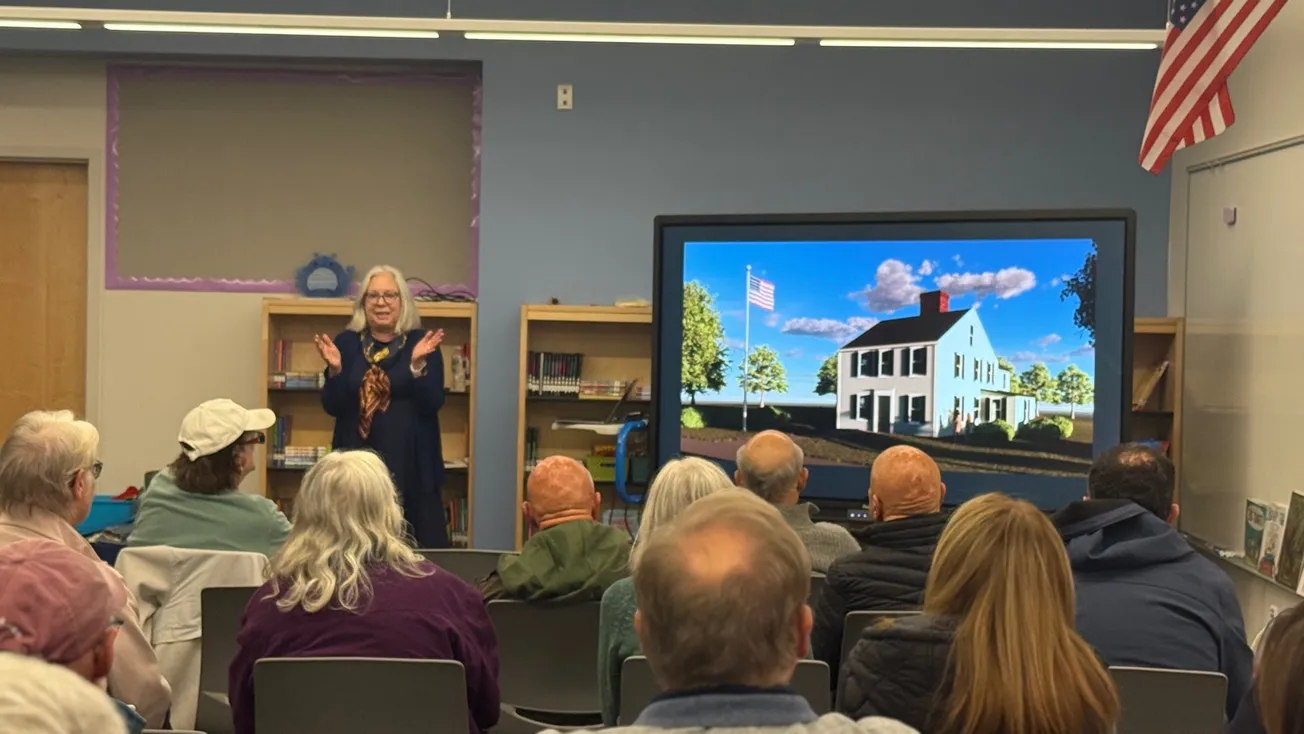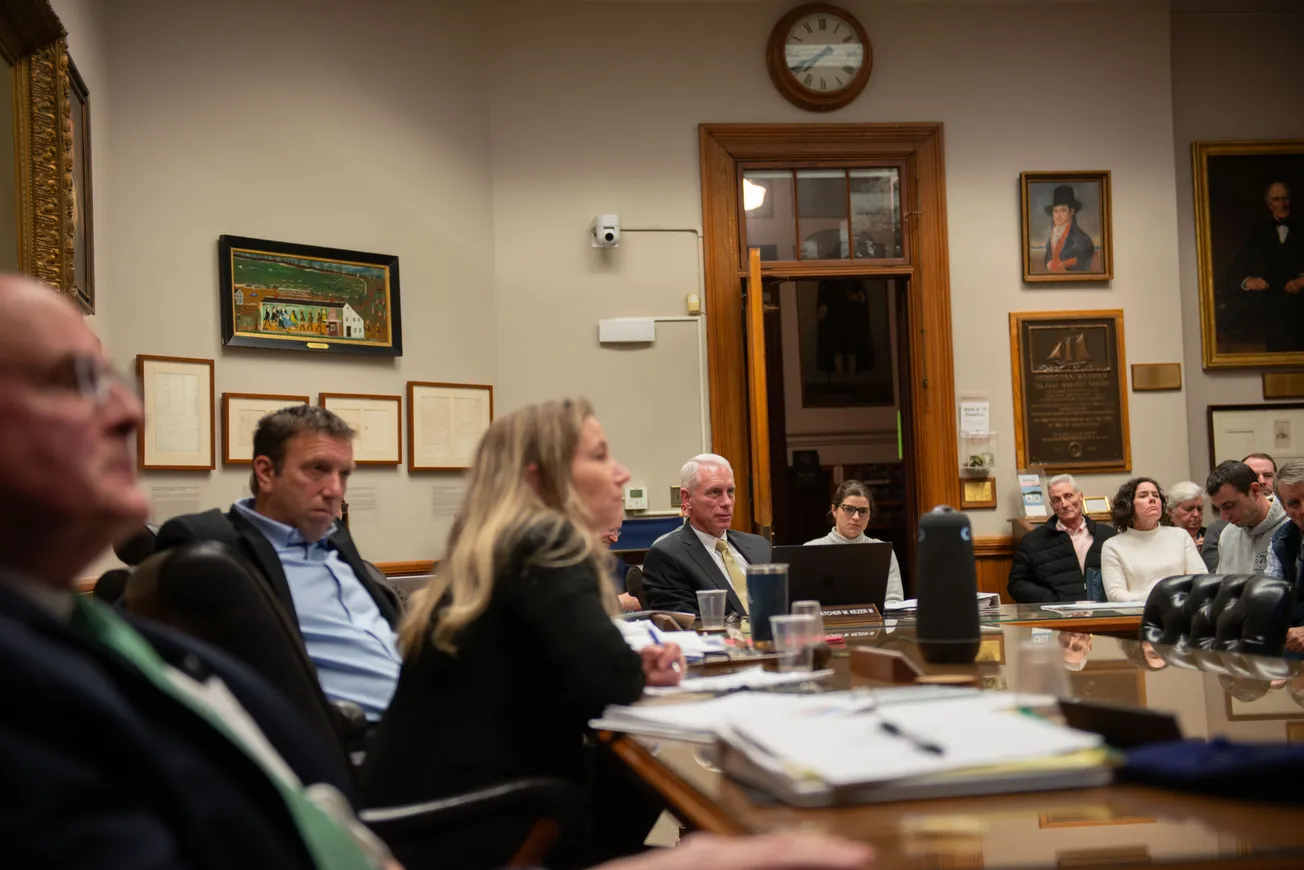Table of Contents
Residents packed a public hearing Thursday evening to voice support for saving the historic General John Glover Farmhouse from demolition, with many warning that destroying the Revolutionary War hero's final home would erase an irreplaceable piece of American history.
About 60 people gathered at Swampscott Elementary School as the town's Historical Commission heard testimony about the 18th-century structure at 299 Salem St., where a developer has applied to demolish the long-vacant building.
The commission, which determined the farmhouse historically significant on Sept. 4, will vote Monday on whether to impose a nine-month demolition delay on the property. It would not be the first time the farmhouse has been spared, at least temporarily.

In 2022, a nine-month demolition delay was issued after a previous developer sought to redevelop the property. That reprieve expired in January 2024, but advocates continued their preservation push, citing the home’s Revolutionary War ties and historic fabric.
"We need to move very quickly and have a good plan to preserve it, because there won't be protection once the demo delay expires," said Nancy Schultz, chair of the Swampscott Historical Commission. "We need to raise significant money very, very quickly to show that we can refinish this house and refurbish this house."
Where memory and demolition meet
The property spans approximately 4 acres across town lines, with 2.29 acres in Swampscott valued at $3.9 million and 1.56 acres in Marblehead valued at $4.56 million. The demolition permit filed July 21 specifically targets only the farmhouse portion of the property.
Built between 1730 and 1750, the farmhouse was originally part of land purchased by the William Browne family. The area has deep historical roots, from pre-colonial Massabequash and Naumkeag settlements to its time as the location of the old Marblehead Gate. Glover, who acquired it later, is credited with saving George Washington's army three times, including during the famous Christmas night crossing of the Delaware River in 1776.

Lee Silverman, who identified himself as a seventh-generation direct descendant of Glover, traveled from Brunswick, Maine to testify.
"It seems both absurd and profoundly disappointing that we are even entertaining the idea of demolishing General Glover's final homestead, the home of one of the Navy's founders, a hero of the American Revolution and a man whose sacrifices made our freedoms possible," Silverman said.
According to structural engineers, 70 to 75 percent of the original house remains intact despite sitting vacant for 30 years since operating as a restaurant.
Ken Shutzer, a local attorney, told attendees the nine-month delay is the primary tool preservationists have in their arsenal.
"There's not a single person in the town of Swampscott who doesn't wish that this building remained," Shutzer said. "The town has to take a strong position. You know, it's all of you have to make your feelings known how distasteful this is and how unfriendly the developer is by disregarding the thoughts of the town."
The impending demolition has stirred patriotic appeals across generational lines. Meghan Perlow of Marblehead shared how her third-grade son Logan, who attends Glover Elementary School, has become invested in saving the structure.
"When it comes to Logan and his classmates, they're tomorrow's curators. They're tomorrow's historians and preservationists, and I just don't want to see where there's nothing left for them to take care of and preserve," Perlow told the commission.

Ted Dooley, a Swampscott Planning Board member, noted that any revised site plan would need to reflect whether the Glover house would remain.
"Whatever the site plan special permit shows is what should be built," Dooley said, suggesting that planning approvals could potentially be tied to preservation commitments.
Swampscott Select Board member David Grishman, speaking as an individual, urged the commission to impose the maximum delay.
"Little by little, our history is being lost in town," Grishman said. "Sometimes delay is good to allow better ideas to formulate as it can and should. What a way to celebrate our country's 250th birthday than by preserving our town's history and our national history."
'Patriotism, responsibility and respect'
Schultz outlined preservation initiatives already underway, including emergency stabilization work, remediation efforts, a National Register nomination, grant-funded historc documentation, and a site archaeological survey. However, these efforts requirae owner approval for site access.
The Athanas family, which has owned the property since 1961, has accepted an offer from National Development. Previous development plans by Legan McCall fell through due to economic concerns after facing community opposition.
Duncan Maitland from the Swampscott Historical Society raised concerns about a state law signed by Gov. Maura Healey that extended building permits for two years, noting that existing permits show development plans without the Glover house.
Schultz said the commission has been in talks with the developer, whom she said might consider preservation if advocates can raise $2 million within 24 months to restore the building's exterior. She reported that a donation account through the town is nearly established.

"We are going to leave no stone unturned, and I'm hoping we'll have a $1.5 million by Christmas," Schultz said.
Several speakers suggested creative partnerships could spread tourism throughout Essex County rather than concentrating it in Salem.
The commission's vote on Monday will determine whether the nine-month demolition delay is imposed. If approved, preservationists would have until approximately July 2026 to negotiate with the developer and raise funds.
With the 250th anniversary of American independence approaching in 2026, supporters view saving Glover's home as both a patriotic duty and potential tourism opportunity.
"This isn't just about preservation," said Silverman. "It's about patriotism, responsibility and respect."





